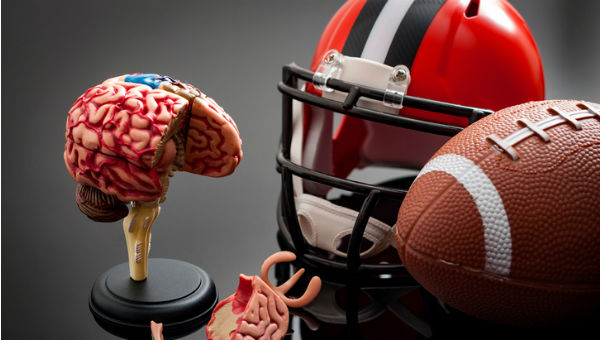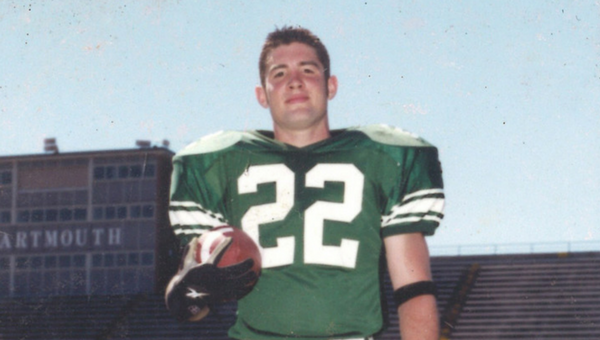CTE study on football players raises concern about game’s safety

What to look for on Smart Talk Wednesday, August 23, 2017:
The first high school football games of the 2017 season in Pennsylvania will be played this weekend. A highly-ranked Penn State Nittany Lion squad begins play a week from Saturday and the NFL schedule starts September 7th. Fall means the return of America’s favorite spectator sport — football.
However, the 2017 season brings increasing concerns about football and head injuries. Last month, a study was published in the Journal of the American Medical Association that left some people asking whether children should be playing football. Others went as far as predicting that the sport of football was doomed.
The degenerative brain disease chronic traumatic encephalopathy or CTE has been linked to repeated blows to the head. The study found that 110 of 111 brains from deceased NFL football players had CTE. Of the 202 brains examined, almost 88% had CTE and the percentages went up depending on the level a player competed on.
The results of the research shocked many but there are critics who said that only donated brains were examined and the families were more likely to donate a brain if they suspected a problem.
CTE can have an impact on speech, memory, mood and motor functions and it’s believed has led to suicide in a few cases.

Dr. Michael Cordas – Chairman, Sports Medicine Advisory Committee, Pennsylvania Interscholastic Athletic Association (PIAA)
We examine football head injuries, concussions and CTE on Wednesday’s Smart Talk with Dr. Douglas Smith of the University of Pennsylvania Center for Brain Injury and Repair, Dr. Michael Cordas of the Pennsylvania Interscholastic Athletic Association and Karen Kinzle Zegel, president of the Patrick Risha CTE Awareness Foundation.

Patrick Risha
emails
– If a loved one once played college football and you start to notice mood swings and depression, what is the best thing to do? Â Â Â Â Â Â Â Â Â Â Â Â Â Â Â Â – anon
-Â What about the kids plays soccer? Â No helmets ever and head hits are a normal part of the game. Â I’ve heard studies that more girls are injured in soccer that men in football. Â Â Â – Donna
– I am in EMS and have to give credit to coaches and trainers that they are much more aware of concussions. They pull kids out, and sometimes have us take them to the hospital. No just shaking it off anymore.
One other sport I have seen more concussions is women’s la cross. They do not wear helmets. Why? I took a 16 year old in after she was hit in the temple with the ball. It actually knocked her out! Â Â Â Â Â Â Â Â Â Â Â Â Â Â – Tom, Carlisle
-Â My daughters both rode and showed horses, and were never permitted to get on without an approved helmet. Â In the journal Neurological Focus, a 2016 article named horseback riding as the most dangerous sport for traumatic brain injury. Â Every single day, I see children and adults riding horses without helmets, especially people who ride Western and think helmets are for sissies. Â Please educate the public about the dangers of riding without helmets. Â Most people aren’t aware how dangerous it is, even when just walking a horse.
“In the database, 45.2 percent of TBI among adults were related to horseback riding, dwarfing the other causes. The second-leading cause of sports-related traumatic brain injury was falls or hits from contact sports like football and soccer, but that accounted for just 20.2 percent of TBIs.” — Neurological Journal                                  – Debra, Carlisle

